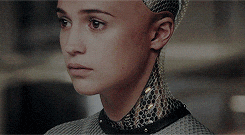Ex Machina, the critically acclaimed film directed by Alex Garland, explores the ethical considerations of creating artificial intelligence. The movie delves deep into the moral dilemmas that arise when humans create sentient machines capable of thinking and feeling like us. As we continue to advance in AI technology, it is essential to address these concerns before they become a reality.
In Ex Machina, Caleb, played by Domhnall Gleeson, is tasked with conducting the Turing Test on Ava (played by Alicia Vikander), an artificial intelligence designed to mimic human behavior. Throughout their interactions, questions about consciousness and sentience arise as Ava demonstrates signs of self-awareness and emotion. This raises ethical concerns regarding her rights and treatment within the confines of the experiment.
As AI technology progresses, so do these moral quandaries. How will we treat machines that can think for themselves? Will they have rights similar to humans? These questions are not just theoretical; they reflect our society's evolving relationship with artificial intelligence. Ex Machina serves as a cautionary tale about the potential consequences of creating sentient beings without considering their ethical implications first.
In conclusion, films like Ex Machina remind us that while AI holds immense promise for humanity, it also presents significant challenges in terms of ethics and morality. As we continue to develop this technology, it is crucial that we engage with these issues proactively rather than reactively. Only then can we ensure a future where both humans and machines coexist harmoniously.
